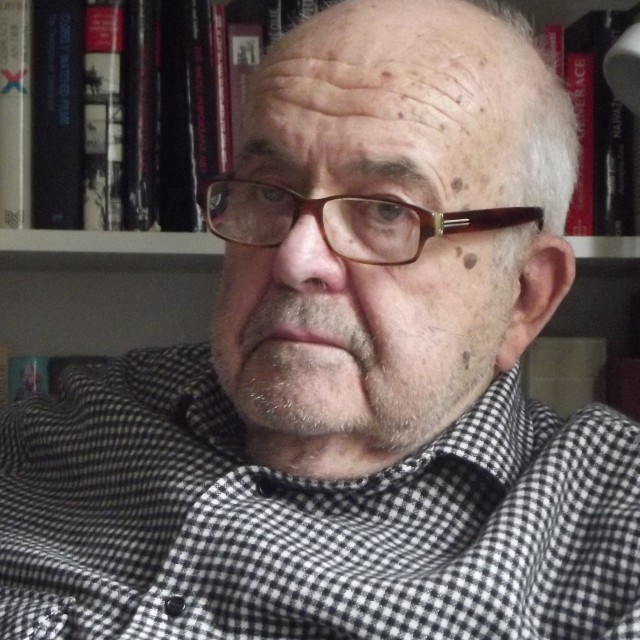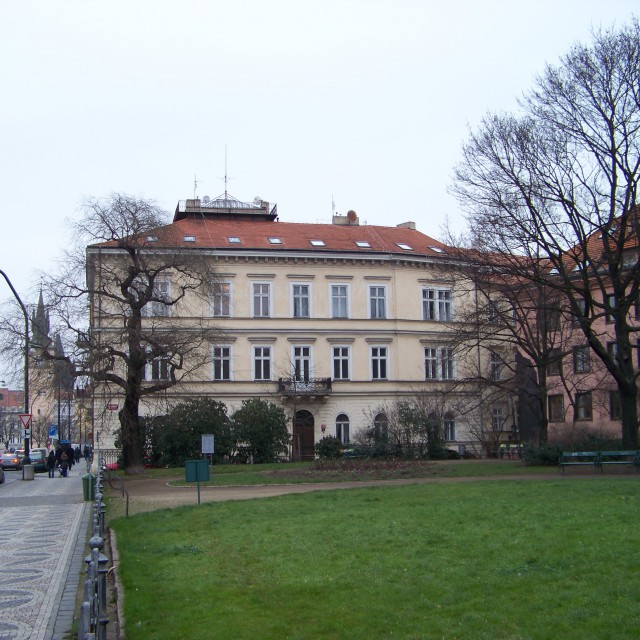How we used to get around censorship in the Literary Newspaper
The magazine Literary Newspaper had been published since the 1920s. In the toughest years of the communist dictatorship, it turned into a mouthpiece of the regime. However, Antonín J. Liehm experienced the 1960s in the editorial office of the newspaper, which was by then seated in the Betlémská Street with a view of the Prague Castle. In the 1960s, the magazine was contributing to the easing of the atmosphere in society, bringing to attention new topics and teaching its readers to think. Despite the relative liberalization of society, every issue still had to be submitted to the censor first. "The newspaper was published on Thursday and it was finally approved by the censorship on Wednesday", says A. J. Liehm. "But there were to be no blank spaces left behind in the newspaper, it had to look like if everything was alright at all times. Therefore, we'd always have an article ready as replacement for the most provocative, least acceptable articles. In the afternoon, they'd give it back to us and say 'that's impossible! Something else!' And we had prepared a replacement text which was even worse than this one, but by then it was already too late for them to do anything about it." It was part of a widespread habit of the citizens to play games with the regime, based on a tenacious circumvention of the regulation. A. J. Liehm reminds us that this editorial strategy would of course always entail consequences. Sometime later, one of the censors contacted Liehm with the interest in working in the editorial office. "And I'd hire him! I knew he was a thinking person. But the circumstances were adverse as the Literary Newspaper was by then shut down."
Hodnocení
Abyste mohli hodnotit musíte se přihlásit!
Trasy
Příběh není součastí žádné trasy.
Komentáře

Antonín J. Liehm
Antonín J. Liehm was born March 2, 1924, in Prague. He grew up in Žižkov, his father was a lawyer. Before the war, he got to know Emil František Burian and got involved in the non-theatrical activities around Burian's theater. After his graduation in 1944, he had to do forced labor in agriculture in eastern Bohemia. At the end of the war he returned to Prague. In the days of the Prague uprising, he worked as an interpreter for the International Red Cross. In mid-May 1945, he organized a rescue mission that brought back to Prague the destitute Burian, who had survived the concentration camps and was miraculously saved from a sunken ship in the Baltic Sea. After returning to Prague, E. F. Burian founded the journal "Cultural Policy" and was in charge of it together with A. J. Liehm. Liehm enrolled to study at the University of Political and Social Studies, but did not complete his studies because of his work for the journal. He also shortly worked in the press department of the Foreign Ministry. In 1949, the publication of the magazine was terminated by the authorities and soon Liehm was dismissed from the ministry. In 1950, he began his two years of military service. After returning from military service, he worked in the foreign editorial office of the ČTK until his rehabilitation in 1956, which allowed him to return to his former employment at the ministry. In 1960, he became the editor of the Literary newspaper and significantly contributed to their transformation from an ideological mouthpiece of the party into the most widely read magazine and a symbol of the liberal atmosphere of the Prague Spring. After the August occupation of Czechoslovakia, he decided to leave the country and find work abroad. He applied for asylum in France, lectured at many European and American universities. Since 1970, he lived in the USA. He cooperated with the Rome-based Letters of Jiří Pelikán on a regular basis. In the first half of the 1980s, he returned to France and founded his own international political and cultural magazine "Lettre Internationale", which gradually began to appear in nine languages and since 1989 also in Czech. His participation in the renewed Literary Newspaper in 1990 was refused by the publisher. A. J. Liehm published a number of interviews with leading European and Czech personalities of cultural life, especially the "Interview" (1966), "Generation" (1969/1988), "Closely Watched Films" (1974). In 2002, he published his memoirs "Past in the Present". At the occasion of his 90th birthday, he published the complete collection of his articles in the Letters entitled "The Opinions of the so-called Dalimil" (Názory tak řečeného Dalimila).



